Intern to attorney: Jean Zhuang combines multiple passions in her legal career
Staff Attorney Jean Zhuang spends much of her time in the Southern Environmental Law Center’s Chapel Hill, North Carolina, office looking for solutions to pollution from industrial toxins.
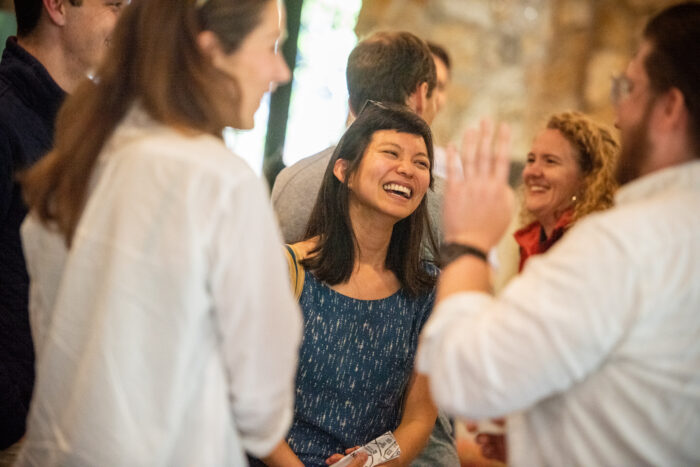
She got to see some of those solutions in action when she and her colleagues successfully stopped pollution from a chemical plant near Fayetteville in eastern North Carolina that was contaminating rivers, streams and drinking water sources with toxic chemicals for nearby and downstream communities. Jean helped negotiate a settlement that cut pollution off at its source, requiring the chemical company to reduce its pollution by more than 99 percent.
Originally from South Florida, she attended law school at the University of Virginia, near SELC’s headquarters. A law school internship with SELC’s Chapel Hill office eventually led to full time job, where Jean now combines her passion for the natural world and human rights. When not analyzing testing results or drafting legal briefs, Jean pursues one of her first loves, painting.
Where did your interest in environmental law begin?
I loved climbing trees and being outdoors as a child. Growing up in an Asian immigrant family, hiking and camping weren’t activities that we did together because my parents weren’t familiar with them. But I spent many of my days catching minnows and tadpoles and climbing gnarled ficus trees.
Our parents even let us do our homework in those trees. As I got older, I got involved in activities to protect the environment. In high school, I mentored students through an environmental after-school program and led a battery recycling initiative.
A lot of the work we do is in the Haw River watershed, where I live, which I think is really meaningful—I see the Haw River all the time, so I get to enjoy and become intimate with the area I work to protect.
Jean Zhuang, Staff Attorney
I’ve always loved the outdoors, but I didn’t think of protecting it as a career until law school. As a first-year law student, I considered working on human rights issues, particularly international issues that rise to the surface when immigrants apply for asylum. But when I interned with SELC, I realized that I could pair my interest in human rights with my interest in the environment. And I have been able to do that through my work since I started at SELC in 2017. Because a lot of my work focuses on toxic chemicals in our rivers and drinking water supplies, I work to protect people, as well as the plants and wildlife that depend on those waters.
A lot of the work we do is in the Haw River watershed, where I live, which I think is really meaningful—I see the Haw River all the time, so I get to enjoy and become intimate with the area I work to protect. Often we work with and meet folks whose water is being impacted. It’s a little bit different from international human rights, where you are working on issues so far from where you live.
What were some experiences that inspired your work within communities to protect the environment?
When I was a child, my parents took my siblings and I on a trip on the Yangtze River in China. This experience struck me because, while visiting villages along the river, I witnessed suffering I had not witnessed at home. From there, I wondered how I could make a positive impact on issues that might go unnoticed or unremedied.
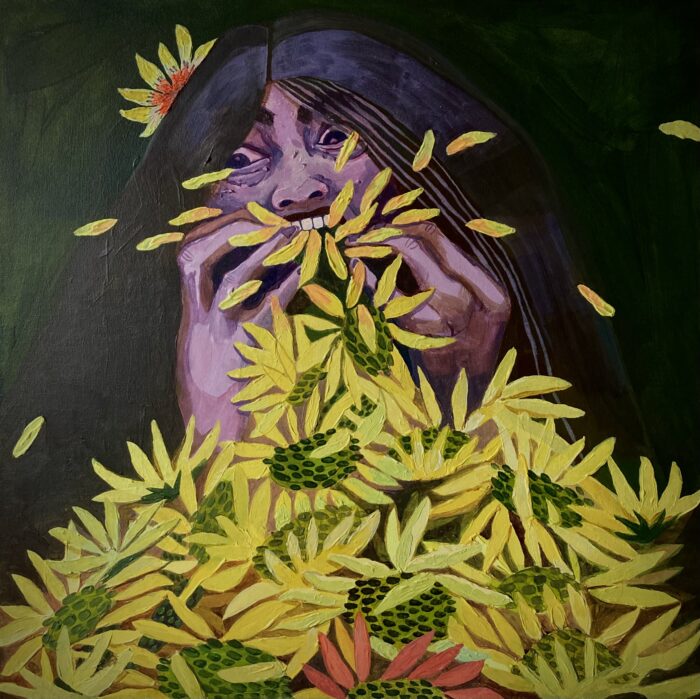
While in college, I studied abroad in a program where we canoed on the Mekong River between Laos and Thailand. I stayed with villages in Thailand that were at risk of being washed out by dams. In Laos, we met with people whose homes already destroyed by a dam. They had been relocated by the dam company to a place where there were no trees. I felt so emotionally connected to the people I met, as they treated me like I was a part of their families.
This part of the program—and others where we lived with and learned from people in the mountain villages and coastal regions of Thailand—taught me a great deal about different natural ecosystems and what it means for a community to rely on and respect the natural resources of an area. Because they respected those environments, the forests and rivers and reefs could thrive while those communities lived. But when that balance is disrupted by outside forces like dams and commercial over-fishing, things can quickly unravel. It threatens the environment and people’s livelihood, their culture, and way of living.
What are some of your favorite cases you’ve worked on at SELC?
It was so meaningful to work on the lawsuits and, eventually, the cleanup agreement around the Chemours facility in Fayetteville, North Carolina. Chemours operates a chemical manufacturing facility that, for over 40 years, was dumping GenX and other toxic PFAS chemicals into the Cape Fear River—a drinking water supply for over 300,000 North Carolinians. This crisis is a prime example of what can happen when industries don’t follow the law and attempt to hide their pollution from the public and agencies. Chemours’ chemical waste devastated communities downstream and it felt surreal, as a young associate, to be able to help hold this company accountable, forcing it to clean up its site. Chemours continues to be a source of PFAS into the environment and we are still working hard to enforce the cleanup agreement and to hold Chemours accountable.
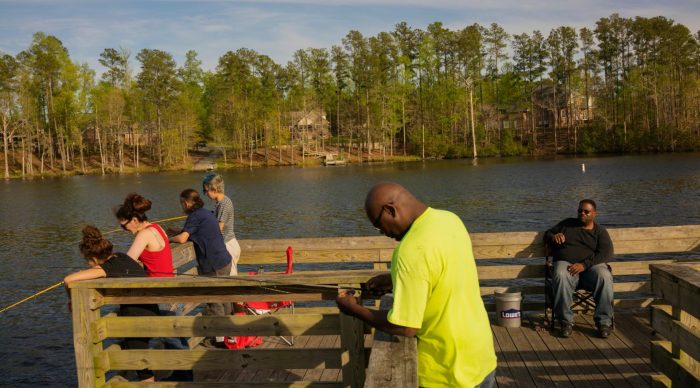
Working with communities to protect Blounts Creek in North Carolina from mine wastewater showed me how much nearby residents love those waters. Slow-moving swamp waters like Blounts Creek are not as charismatic and don’t always get the same kind of love as some of our other rivers and streams. But Blounts Creek is truly special to those who live in the area and folks who travel from far away to fish in those waters. Because that case is so different from many of my other cases involving the contamination of drinking water supplies, it taught me something different—how to tell a story about a natural place that can easily be undervalued or unappreciated, to convince a judge that this is a place that needs to be protected.
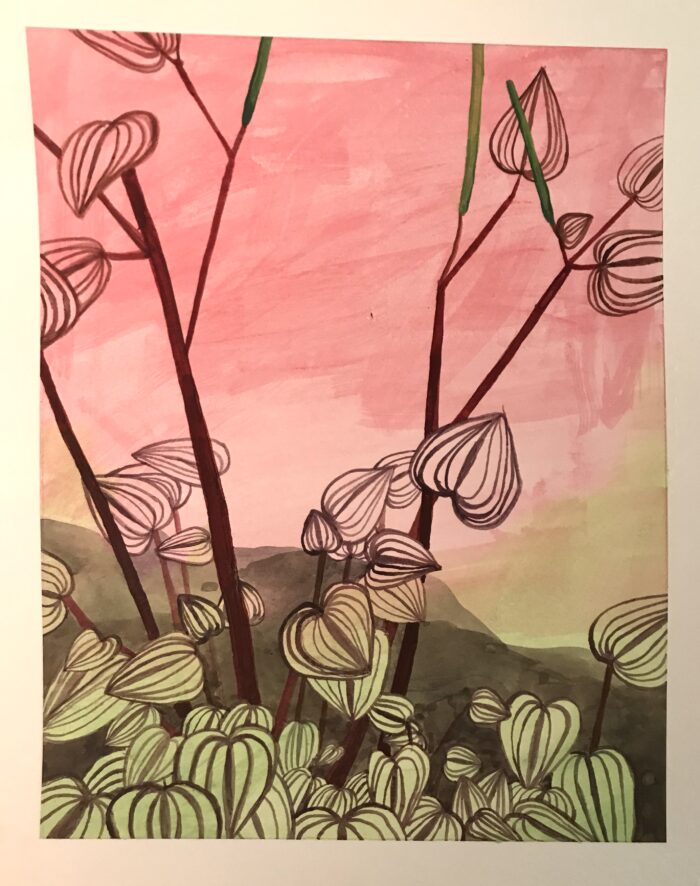
How does being creative contribute to your career?
There’s something about when you’re in the middle of a painting, you don’t think about anything else, you’re very much in the moment. I haven’t had very much success keeping up with meditation practices that’ve been recommended to me, but in a way, when I’m painting, I can find a meditative flow—the kind that is so valuable for staying centered, especially when you have a high-pressured career. If you don’t take care of yourself (and each other), public interest work can be draining, especially with so many forces working against us. Having something outside of work that makes me feel centered pushes me to keep going when there are setbacks.
What advice would you give to someone aspiring to work in the environmental field?
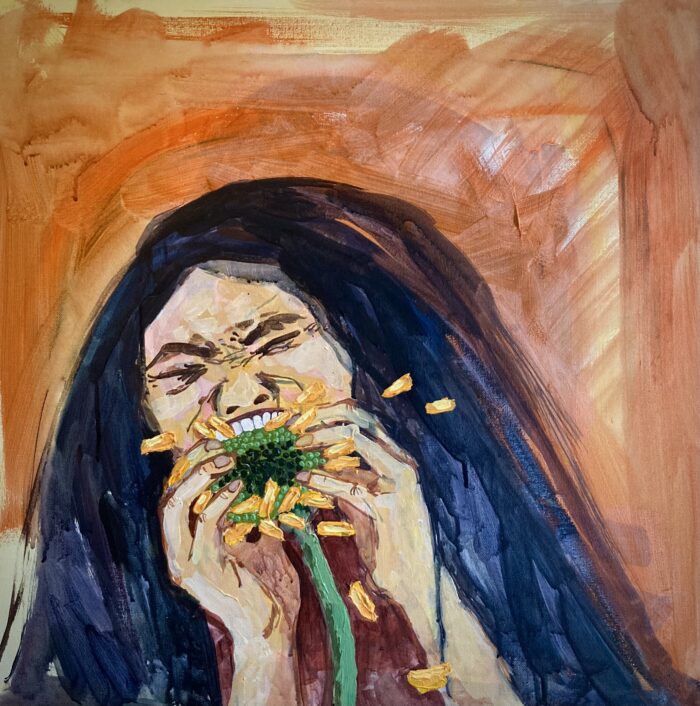
Seek out people who are doing what you want to do and ask for guidance. It takes courage to ask for guidance from people already in the thick of their careers, but I love to provide more insight, and I know many others in the environmental field do too!
What advice would you give to young people?
I have two pieces of advice for young people: get off social media and go outside! Social media can be a great tool for advocacy and action, but it can be great to step back from it, too. Time away can help you remember what’s important in life.
And leave your phone behind and slow down when you are outside. Watch a bug crawl up and down some stems and pet some moss.
How have you made gratitude a part of your career?
Being an attorney isn’t what I consider in my nature. I identify strongly as a creative and leaned into that for much of my life. But strengthening the other side of me—having the confidence to speak out, articulate my thoughts, and fight for what I believe in—has made me more whole. I’m grateful for my passionate, kind, and inspiring colleagues who I get to work with every day. And I am grateful for my parents, who worked very hard to give me stability growing up, and the gift of education. They gave me a childhood where I could play outdoors and learn to paint, and the foundation to pursue a career I am passionate about. I’m lucky to have the chance to make a difference for people and the environment.
